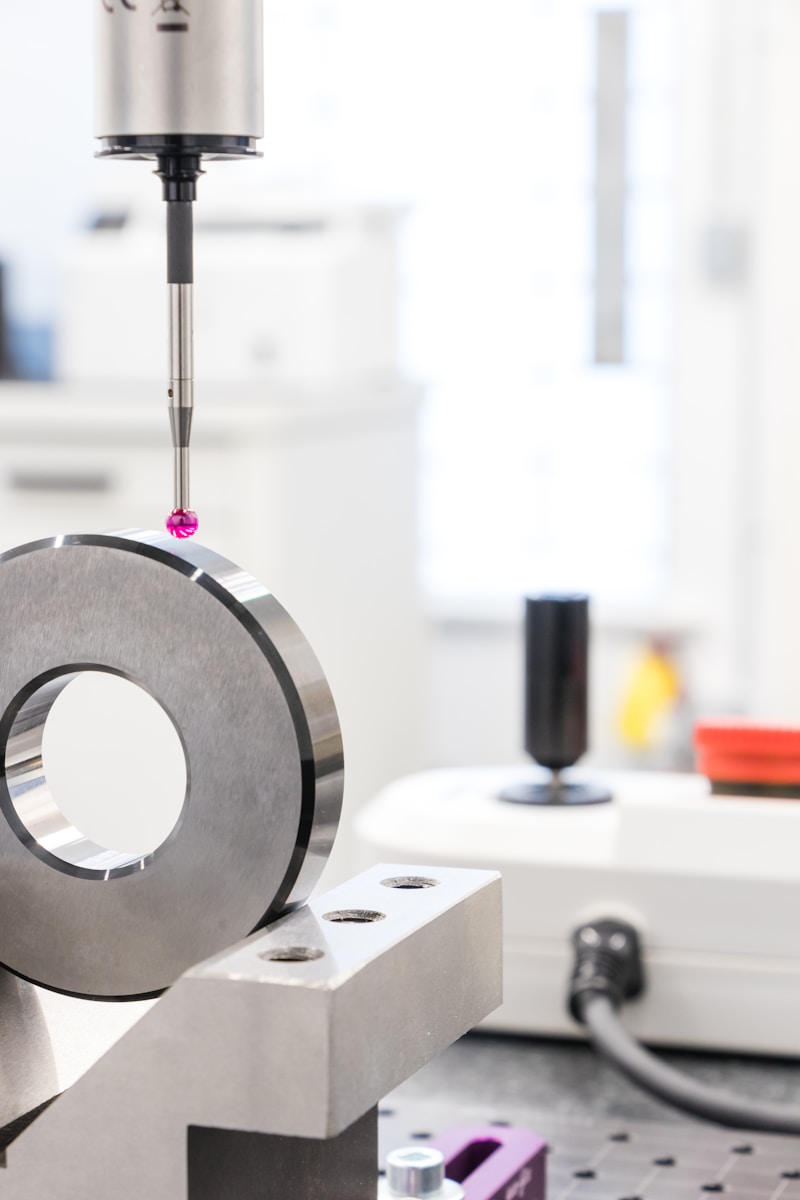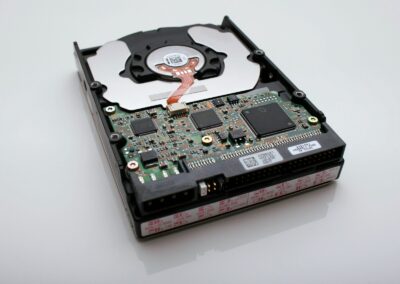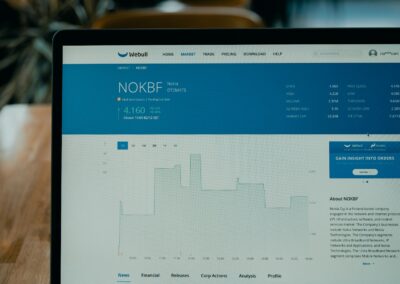Implications of Poor Data Integrity on IoT Performance
Understanding the Importance of Data Integrity in IoT
Data integrity in IoT deployments is crucial for ensuring the overall performance and reliability of these systems. In technologically advanced regions like Saudi Arabia and the UAE, where cities such as Riyadh and Dubai are pioneering smart city initiatives, maintaining robust data integrity is essential for operational success. Poor data integrity can lead to a cascade of issues that compromise the functionality, accuracy, and trustworthiness of IoT systems.
In the context of IoT, data integrity refers to the accuracy, consistency, and reliability of data throughout its lifecycle. This means ensuring that data remains unaltered and accurate from the moment it is captured by IoT sensors to the point where it is processed and analyzed. In Saudi Arabia and the UAE, where IoT applications span across critical sectors such as healthcare, energy, and transportation, any compromise in data integrity can have significant repercussions. For example, in healthcare, inaccurate patient data due to integrity issues can lead to incorrect diagnoses and treatment plans, potentially endangering lives.
Moreover, maintaining data integrity is essential for achieving regulatory compliance and safeguarding user trust. Businesses that fail to ensure data integrity in their IoT deployments may face legal repercussions and damage to their reputation. This is particularly relevant in sectors like finance and healthcare, where data privacy and accuracy are paramount. In Dubai, smart healthcare systems must adhere to strict data integrity protocols to ensure that patient information is both secure and reliable.
Consequences of Poor Data Integrity
The implications of poor data integrity in IoT deployments are far-reaching and can significantly impact business operations. One of the primary consequences is the degradation of system performance. IoT systems rely on accurate data to function correctly, and any discrepancies can lead to incorrect decision-making and suboptimal performance. In regions like Riyadh and Dubai, where IoT systems are integral to smart city infrastructure, poor data integrity can result in inefficiencies and increased operational costs.
For instance, in the energy sector, poor data integrity can lead to incorrect readings and forecasts, affecting energy distribution and consumption patterns. This can cause either surplus or deficit in energy supply, leading to financial losses and reduced reliability of the energy grid. Similarly, in transportation, inaccurate data from IoT sensors can disrupt traffic management systems, causing congestion and increasing the risk of accidents. Ensuring data integrity is therefore critical for maintaining the smooth operation of IoT systems and minimizing risks.
Furthermore, poor data integrity undermines the trust of stakeholders and users. Businesses that cannot guarantee the accuracy and reliability of their data may struggle to retain customer confidence and attract new clients. This is particularly relevant in industries such as finance, where data integrity is crucial for risk assessment and decision-making. In Dubai, financial institutions leveraging IoT for enhanced services must prioritize data integrity to maintain their competitive edge and ensure regulatory compliance.
Strategies for Ensuring Data Integrity
To mitigate the risks associated with poor data integrity, businesses must implement robust strategies to ensure the accuracy and reliability of their IoT data. One effective approach is to employ advanced encryption techniques to protect data at every stage of its lifecycle. This ensures that data remains secure and unaltered from the point of capture to processing and storage. In Saudi Arabia, where data privacy regulations are stringent, encryption is a critical component of maintaining data integrity.
Another strategy is to implement comprehensive data validation and verification processes. This involves regularly checking the accuracy and consistency of data to identify and correct any discrepancies. In the UAE, businesses can leverage machine learning algorithms to automate these processes, enhancing their efficiency and effectiveness. For example, in smart city projects in Riyadh, continuous data validation can ensure that IoT sensors provide accurate readings for traffic management and energy distribution systems.
Additionally, fostering a culture of data integrity within the organization is essential. This involves training employees on the importance of data integrity and equipping them with the necessary tools and knowledge to maintain it. Executive coaching services can play a pivotal role in this regard, helping leaders to instill best practices and create a data-driven culture. In Dubai, businesses that prioritize data integrity as a core value can enhance their operational efficiency and build stronger relationships with their customers and stakeholders.
Building Reliable IoT Systems Through Data Integrity
Leveraging Technology to Enhance Data Integrity
Leveraging advanced technologies such as Artificial Intelligence (AI) and Blockchain can significantly enhance data integrity in IoT deployments. AI algorithms can be used to monitor and analyze data continuously, identifying patterns and anomalies that may indicate integrity issues. In Saudi Arabia and the UAE, where IoT systems are integral to various industries, AI can play a crucial role in ensuring data accuracy and reliability.
Blockchain technology offers a decentralized approach to maintaining data integrity. By creating immutable records of transactions and data exchanges, Blockchain can ensure that data is tamper-proof and verifiable. In smart city projects in Riyadh and Dubai, Blockchain can be used to secure data from IoT sensors, providing a transparent and trustworthy record of information. This not only enhances data integrity but also builds trust among stakeholders.
Moreover, integrating Generative AI can help businesses predict and prevent data integrity issues before they occur. By analyzing historical data and identifying potential risks, Generative AI can enable proactive measures to protect data integrity. In the UAE, businesses can use Generative AI to enhance their IoT systems, ensuring that data remains accurate and reliable at all times. This proactive approach can lead to significant improvements in system performance and reliability.
Implementing Best Practices for Data Integrity
Implementing best practices for data integrity is essential for building reliable IoT systems. One such practice is to establish clear data governance policies that outline the roles and responsibilities of individuals within the organization. This ensures that everyone understands their role in maintaining data integrity and adheres to standardized procedures. In Saudi Arabia, businesses can develop comprehensive data governance frameworks to support their IoT deployments.
Regular audits and assessments are another best practice for ensuring data integrity. By conducting periodic reviews of data management processes, businesses can identify and address any gaps or weaknesses. In Dubai, businesses can collaborate with external auditors to gain an unbiased perspective on their data integrity practices. This not only helps in maintaining high standards but also demonstrates a commitment to data integrity to stakeholders.
Investing in continuous training and development for employees is also crucial. As IoT technology evolves, so too do the challenges related to data integrity. By providing ongoing training and development opportunities, businesses can ensure that their workforce is equipped with the latest knowledge and skills. Executive coaching services can be particularly valuable in this regard, helping leaders to foster a culture of continuous improvement and data integrity within their organizations.
Conclusion: The Path Forward
As the adoption of IoT technology continues to expand in Saudi Arabia and the UAE, maintaining data integrity will be increasingly important for ensuring the performance and reliability of these systems. Businesses that prioritize data integrity can achieve significant improvements in operational efficiency, stakeholder trust, and regulatory compliance. By leveraging advanced technologies, implementing best practices, and fostering a culture of data integrity, organizations can build robust and reliable IoT systems that drive business success.
In conclusion, data integrity is a critical component of successful IoT deployments. Ensuring the accuracy, consistency, and reliability of data not only enhances system performance but also builds trust and supports regulatory compliance. As businesses in Saudi Arabia and the UAE continue to embrace IoT technology, maintaining data integrity will be key to achieving long-term success and competitive advantage.
—
#DataIntegrity #IoTSystems #IoTPerformance #IoTReliability #BusinessSuccess #ModernTechnology #LeadershipSkills #ProjectManagement #SaudiArabia #UAE #Riyadh #Dubai #ArtificialIntelligence #Blockchain #TheMetaverse #ExecutiveCoachingServices #GenerativeAI































